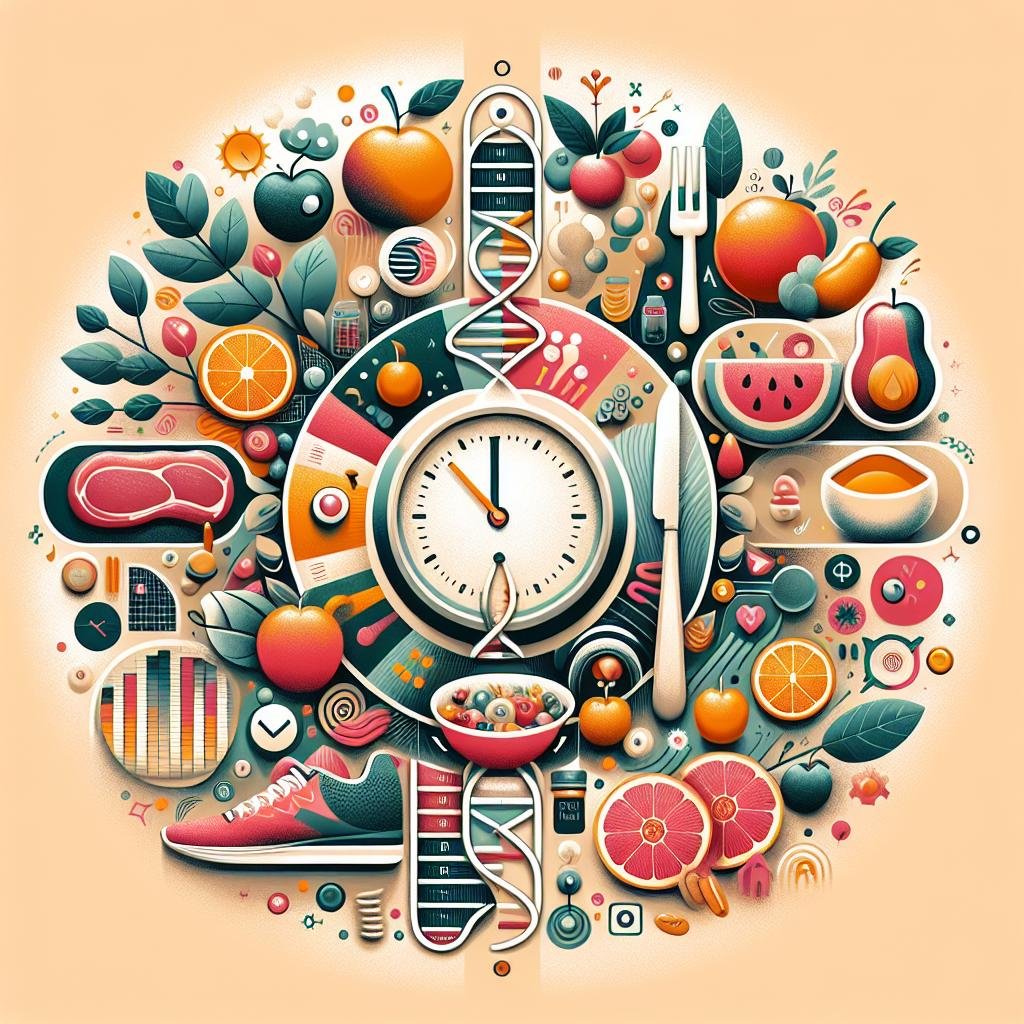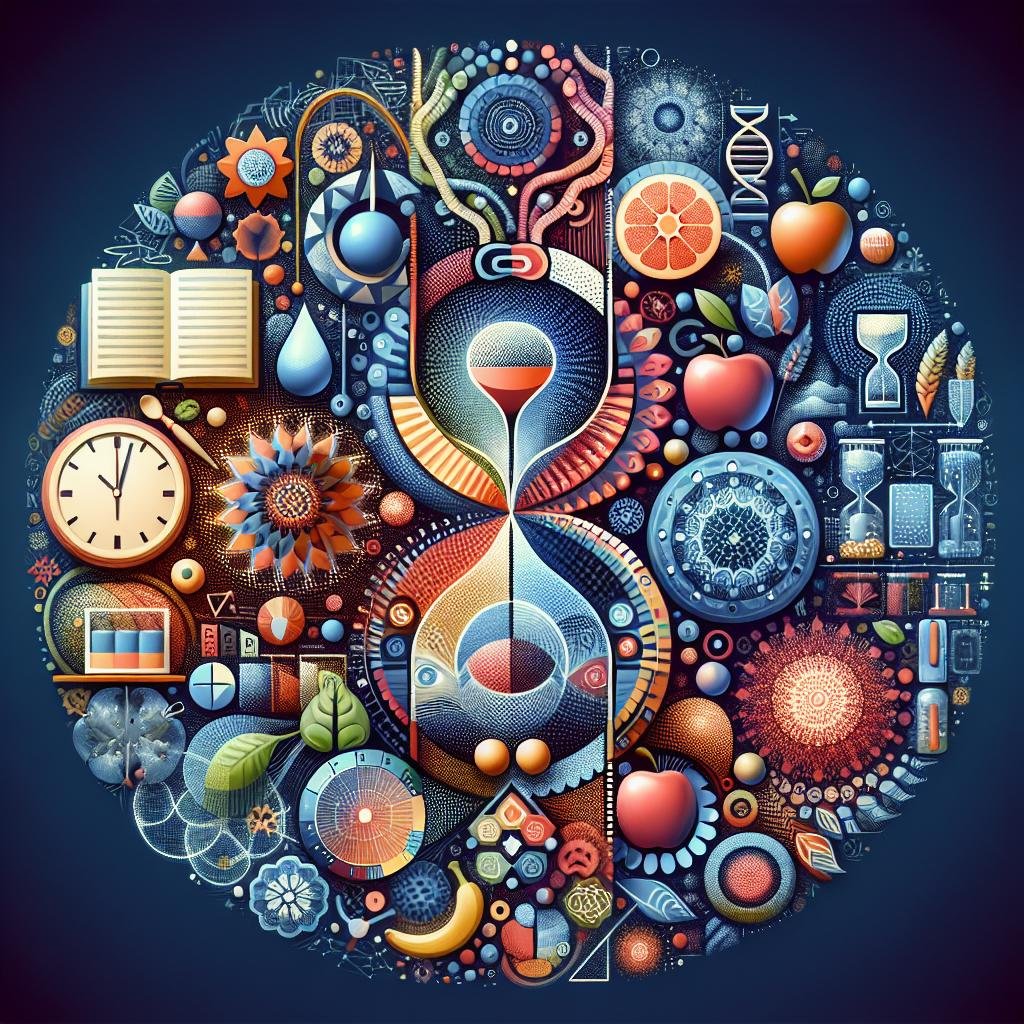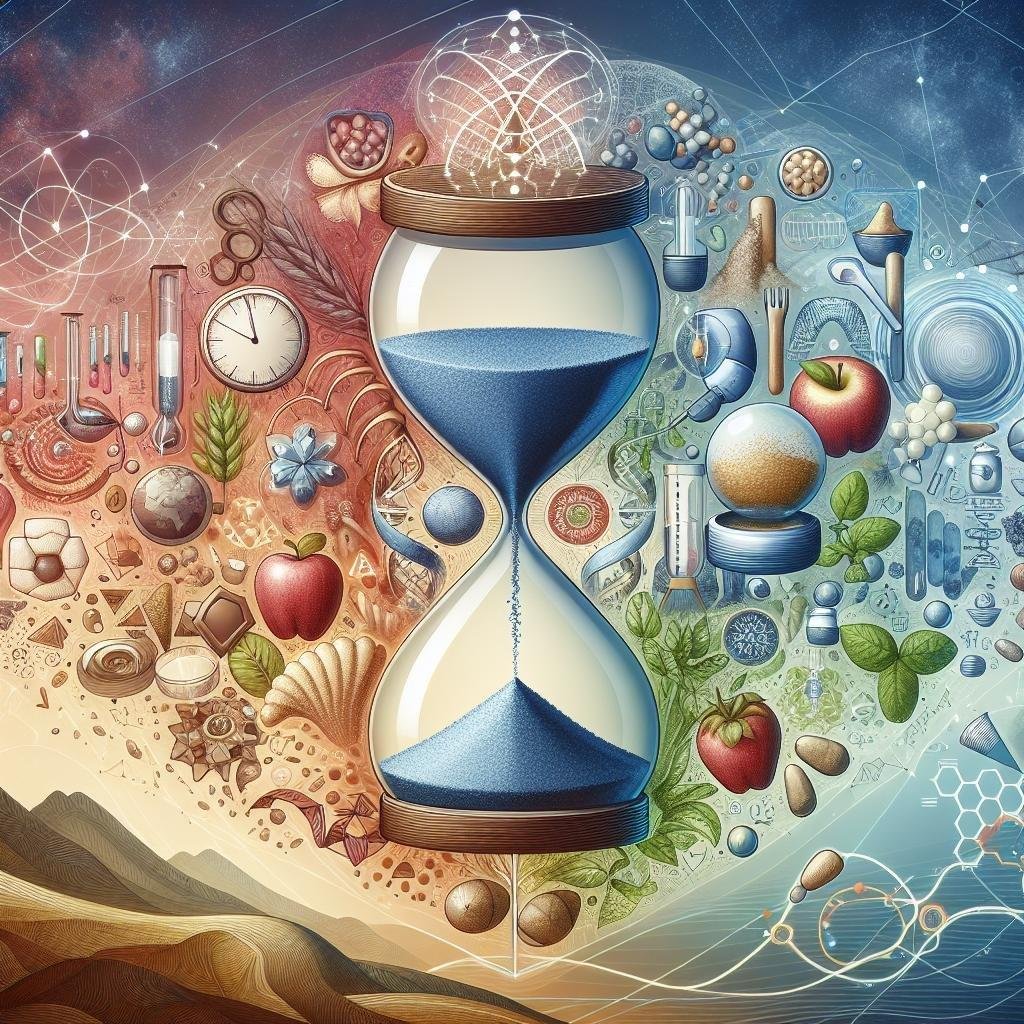In an age where wellness trends rise and fall like the tide, intermittent fasting has emerged as a prominent beacon for those seeking a healthier lifestyle. By oscillating between periods of eating and fasting, many individuals report remarkable benefits like weight loss, improved metabolic health, and increased mental clarity. However, as with any dietary approach, it’s essential not to overlook the foundational elements of nutrition, particularly vitamins and minerals, which play critical roles in maintaining our overall health. This article explores the intricate relationship between intermittent fasting and nutrient intake, shedding light on what you need to know to ensure your body is nourished throughout your fasting journey. Understanding the synergy between these two elements not only enhances the effectiveness of your fasting regimen but also supports your long-term health goals. Join us as we delve into the nuances of this increasingly popular practice and uncover strategies to optimize your nutritional intake while embracing the benefits of intermittent fasting.
Understanding Intermittent Fasting: The Science Behind the Routine
Intermittent fasting (IF) is more than just a trendy eating pattern; it’s a scientifically-supported approach to nutrition that focuses on the timing of food intake. The routine encourages periods of eating and fasting, which can enhance cellular repair processes and improve metabolic health. When considering micronutrient intake, it’s essential to ensure that the foods consumed during eating windows are rich in vitamins and minerals to support overall health. Some key nutrients to focus on include:
- Vitamin D: Essential for bone health and immune function, often obtained from sunlight and fortified foods.
- Magnesium: Involved in over 300 biochemical reactions, found in nuts, seeds, and leafy greens.
- Folate: Crucial for cell division and growth, primarily sourced from fruits, vegetables, and legumes.
- Iron: Vital for oxygen transport in the blood, commonly found in red meat, beans, and spinach.
Scheduling meals thoughtfully can also significantly impact micronutrient absorption. For optimal intake during fasting regimes, consider meals that incorporate a variety of whole foods. The following table outlines suggested food sources rich in key vitamins and minerals:
| Micronutrient | Food Sources |
|---|---|
| Vitamin D | Fatty fish, fortified cereals, mushrooms |
| Magnesium | Dark chocolate, almonds, spinach |
| Folate | Lentils, asparagus, avocados |
| Iron | Red meat, lentils, quinoa |

Nutrient Timing: Ensuring Adequate Vitamin and Mineral Intake
One of the keys to maximizing the benefits of intermittent fasting lies in timing your nutrient intake. During your eating windows, it’s essential to focus on incorporating a variety of vitamins and minerals that will support your health and energy levels. By planning meals that are rich in nutrients, you can ensure that your body receives all the essentials it needs. Here are some important vitamins and minerals to focus on:
- Vitamin D: Essential for bone health, often obtained from sunlight and fortified foods.
- Iron: Vital for oxygen transport in the blood; find it in red meat, beans, and spinach.
- Calcium: Crucial for strong bones and teeth; dairy products and leafy greens are excellent sources.
- Magnesium: Plays a role in muscle function and relaxation; nuts and seeds are rich in this mineral.
To help visualize how you can plan your meals effectively, consider this simplified table highlighting food sources per nutrient:
| Nutrient | Food Sources |
|---|---|
| Vitamin D | Fatty fish, fortified dairy, egg yolks |
| Iron | Red meat, lentils, chickpeas, pumpkin seeds |
| Calcium | Yogurt, cheese, tofu, almonds |
| Magnesium | Spinach, quinoa, black beans, avocados |

Key Vitamins and Minerals to Focus On During Fasting
During fasting periods, maintaining an adequate intake of essential nutrients is crucial for overall health and well-being. Certain vitamins and minerals play pivotal roles in supporting bodily functions, enhancing energy levels, and minimizing fatigue. Focus on incorporating the following nutrients into your eating windows:
- Vitamin D: Essential for bone health and immune function, it can be found in fatty fish and fortified dairy products.
- Magnesium: A vital mineral that supports muscle and nerve function, nuts, seeds, and leafy greens are great sources.
- Potassium: Important for heart and muscle health, bananas, avocados, and sweet potatoes can help maintain levels.
- Vitamin B12: Vital for nerve function and the production of red blood cells, it’s primarily sourced from animal products.
- Folate (B9): Supports cellular function and tissue growth; find it in beans, lentils, and leafy greens.
To further assist with nutrient absorption and overall health, consider creating a balanced meal plan that emphasizes variety. This may include:
| Food Item | Nutrient Content |
|---|---|
| Salmon | Vitamin D, B12 |
| Spinach | Magnesium, Folate |
| Banana | Potassium |
| Almonds | Vitamin E, Magnesium |
Staying mindful of these key nutrients can enhance your intermittent fasting experience, ensuring that you not only fasting effectively but also supporting your body’s nutritional needs.

Practical Strategies for Balancing Nutrients in Your Eating Window
Achieving the right balance of nutrients during your eating window is essential for maximizing the benefits of intermittent fasting. Start by focusing on whole foods rich in vitamins and minerals. Prioritize the following food groups to ensure you’re meeting your nutritional needs:
- Fruits and Vegetables: Aim for a colorful variety to obtain a broad spectrum of nutrients.
- Whole Grains: Choose options like quinoa, brown rice, and oats for fiber and essential B vitamins.
- Protein Sources: Incorporate lean meats, fish, legumes, and plant-based proteins to support muscle repair and sustain energy.
- Healthy Fats: Include avocados, nuts, and seeds for heart health and to help with nutrient absorption.
Planning meals is crucial when adhering to intermittent fasting. Consider preparing a nutrient-dense meal template to streamline your process. Here’s a simple layout to help you stay organized:
| Meal Components | Options |
|---|---|
| Protein | Chicken, Tofu, Fish |
| Carbohydrate | Sweet Potatoes, Quinoa, Brown Rice |
| Vegetables | Spinach, Broccoli, Carrots |
| Fats | Olive Oil, Nuts, Avocado |
By utilizing these strategies, you not only ensure that you’re consuming a balanced diet but also promote a sustainable approach to intermittent fasting that can lead to long-term health benefits.
The Conclusion
as you navigate the intriguing world of intermittent fasting, it’s essential to remain mindful of your nutritional arsenal—particularly your vitamins and minerals. Balancing these micronutrients while adhering to your fasting schedule can be the key to unlocking the full benefits of this dietary approach. Remember, the journey toward better health is as much about what you include in your meals as it is about when you eat. With thoughtful planning and a keen awareness of your body’s needs, you can harmonize intermittent fasting with optimal nutrient intake. Whether you’re a seasoned faster or just beginning to explore this method, staying informed and attuned to your nutritional requirements will empower you to cultivate a lifestyle that enhances both your well-being and your fasting experience. Embrace the balance, and may your health journey be both enlightening and rewarding.

